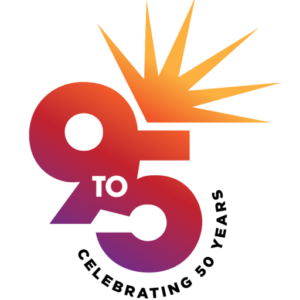Recently, we joined 60 other organizations to send a letter to Congress on how reproductive justice is an economic justice issue. Check out the full letter below.
Dear Senator,
We, the undersigned 61 organizations dedicated to economic justice and gender justice write in support of access to abortion and recognize that the freedom to control our reproductive lives is fundamental to our economic security, well-being, and equality. We encourage you to name publicly that abortion access is essential to economic justice and to support policies that advance sexual and reproductive health and rights for all.
Since the Supreme Court erroneously overturned the constitutional right to abortion in Dobbs v. Jackson Women’s Health Organization, 14 states are currently enforcing total bans on abortion and 7 additional states restrict access under limits that would have been blatantly unconstitutional under Roe. One in three women of reproductive age – in addition to affected transgender and nonbinary people – are blocked from accessing abortion in their home state. Due to systemic racism and a long history of unequal access to health care in our country, the harms of these restrictive policies have fallen hardest on those who are more likely to be people of color, people who are immigrants, young people, people with disabilities, the LGBTQI+ community, people with low to no income, and those living in rural and/or medically underserved areas. Each person, no matter their zip code, income, or ability to travel should have the freedom to live, work, and make decisions about their health and their future with dignity and respect.
Economic security is necessary for all people to participate fully in society, and it is particularly vital for those who have been historically denied economic freedom, including women and other individuals who can become pregnant. Economic security both allows individuals the opportunity to access the full spectrum of reproductive health care and is also the result of having that access, and it makes it more likely that those who choose to parent are able to do so safely. Decisions about reproductive health care and economic wellbeing are intertwined for many abortion seekers, too, with 40 percent of abortion patients citing financial reasons in their decision to seek abortion care. Furthermore, over half of abortion patients are already parents. These financial barriers are compounded by the harms of the Hyde Amendment, which denies abortion coverage to individuals enrolled in the Medicaid program, putting abortion care even further out of reach for those struggling to make ends meet. While 17 states use their own funds to cover abortions for Medicaid beneficiaries, 32 states and DC only cover abortions under the extreme limited circumstances set forth by the Hyde Amendment (or even less). Research clearly demonstrates that having the freedom to manage one’s reproductive and sexual health and the ability to access that care is directly linked to their immediate and future economic security.
The right to abortion is not just the right to decide if, when, and how to have a child—but also includes the right to bodily autonomy and the right to determine one’s own life and thrive. For women in particular, the evidence that abortion access affects their economic well-being is clear: women who are denied an abortion are significantly more likely to fall into poverty, increase their amount of debt, and generally have worse financial security in the years following the denied abortion, as compared to individuals who received abortion care. Furthermore, lack of abortion access limits women’s education attainment, labor force participation, and the ability to access higher paying jobs, ultimately harming a person’s economic security, particularly for Black women. On the other hand, research shows that for those who had pregnancies before the age of 24, having abortion access increased their probability of completing college by 72 percent. Studies have found that abortion access has increased educational attainment for Black women, increased women’s participation in the workforce, and led to improved educational and economic outcomes for children. In fact, for Black women who had pregnancies before the age of 24, access to abortion increased individual earnings by 75-100 percent per year and family income by more than 100 percent per year.
For individuals who are forced to give birth, the economic consequences are worsened by inequitable health coverage, high costs of pregnancy-related care, and inadequate infrastructure to support parents. The average cost of childbirth in the U.S. for people with private, employer-sponsored insurance in 2020 was $13,393, which accounts for nearly one-quarter (22%) of average personal income. The lack of vital work supports and protections for people in the U.S., such as paid family and medical leave and paid sick days, mean that many are forced to choose between paying their bills and caring for their own health and the health of their loved ones. It means that they may be required to return to work immediately after giving birth, juggling parenting responsibilities and grappling with the skyrocketing costs of childcare. As it stands, nearly three out of four workers do not have paid family leave, and almost one in four in the private sector do not have a single paid sick day. Of these people, Black, Latinx, and Native workers are the least likely to have access to paid leave or the economic resources to take unpaid leave following childbirth. Furthermore, mothers, despite increasingly being the breadwinners in their families, often face a “motherhood wage penalty” due in part to caregiving responsibilities: mothers working full time, year round are paid just 74 cents for every dollar paid to fathers. Disaggregated data reveals even starker pay gaps for mothers of color: for every dollar paid to white, non-Hispanic fathers, Black mothers are paid just 52 cents, Latina mothers just 47 cents, and Native American mothers 49 cents. These wage gaps cause ripple effects on people’s entire economic lives, affecting their ability to afford health and child care costs, save up for retirement, pay their mortgage, or stay out of debt.
States that have enacted the most extreme abortion restrictions are also the states that have failed to implement policies that promote economic security such as raising the minimum wage, ensuring access to paid leave and paid sick days, expanding Medicaid, extending Medicaid postpartum coverage, and implementing fair scheduling laws to cut down on unstable and unpredictable work schedules. These policy failures can threaten people’s economic well-being and deprive them of autonomy, not just over their bodies and pregnancies, but the trajectory of their entire lives.
Access to abortion enables individuals to thrive, determine their future, and live with dignity. The decision to parent is one of the most important life decisions a person can make, and specifically, has the ability to drastically change the economic well-being of a person’s life. Congress must recognize that abortion access cannot be separated from economic justice. We urge you to speak out against attacks on sexual and reproductive health care, including abortion, in service of economic justice for all.
Sincerely,
- 9to5
- A Better Balance
- Advocates for Youth
- All-Options
- American Association of University Women
- American College of Nurse-Midwives
- American Humanist Association
- American Society for Reproductive Medicine
- Association of Maternal & Child Health Programs
- Campaign for a Family Friendly Economy
- Center for American Progress
- Center for Biological Diversity
- Center for Law and Social Policy (CLASP)
- Center for Reproductive Rights
- Center for WorkLife Law
- Equal Rights Advocates
- Family Equality
- Family Values @ Work
- Guttmacher Institute
- Health Care for America Now (HCAN)
- Ibis Reproductive Health
- In Our Own Voice: National Black Women’s Reproductive Justice Agenda Indivisible
- Institute for Women’s Policy Research
- Ipas
- Jacobs Institute of Women’s Health
- Legal Momentum, The Women’s Legal Defense and Education Fund
- NAACP Legal Defense and Educational Fund, Inc.
- National Abortion Federation
- National Asian Pacific American Women’s Forum
- National Center for Lesbian Rights
- National Council of Jewish Women
- National Family Planning & Reproductive Health Association National Health Law Program
- National Latina Institute for Reproductive Justice
- National Network to End Domestic Violence
- National Organization for Women Foundation
- National Women’s Health Network
- National Women’s Law Center
- North Carolina Justice Center
- Oxfam America
- PFLAG National
- Physicians for Reproductive Health
- Planned Parenthood Federation of America
- Poder Latinx
- Positive Women’s Network-USA
- Power to Decide
- Religious Coalition for Reproductive Choice
- Reproductive Freedom for All (formerly NARAL Pro-Choice America) Reproductive Justice Maryland
- SIECUS: Sex Ed for Social Change
- The Century Foundation’s Health Equity and Reform team The National Domestic Violence Hotline
- The University of Baltimore School of Law Center on Applied Feminism UCSF Bixby Center for Global Reproductive Health
- Union for Reform Judaism
- URGE: Unite for Reproductive & Gender Equity
- Washington State Women’s Commission
- Women of Reform Judaism
- Women’s Law Center of Maryland
- Women’s Law Project

